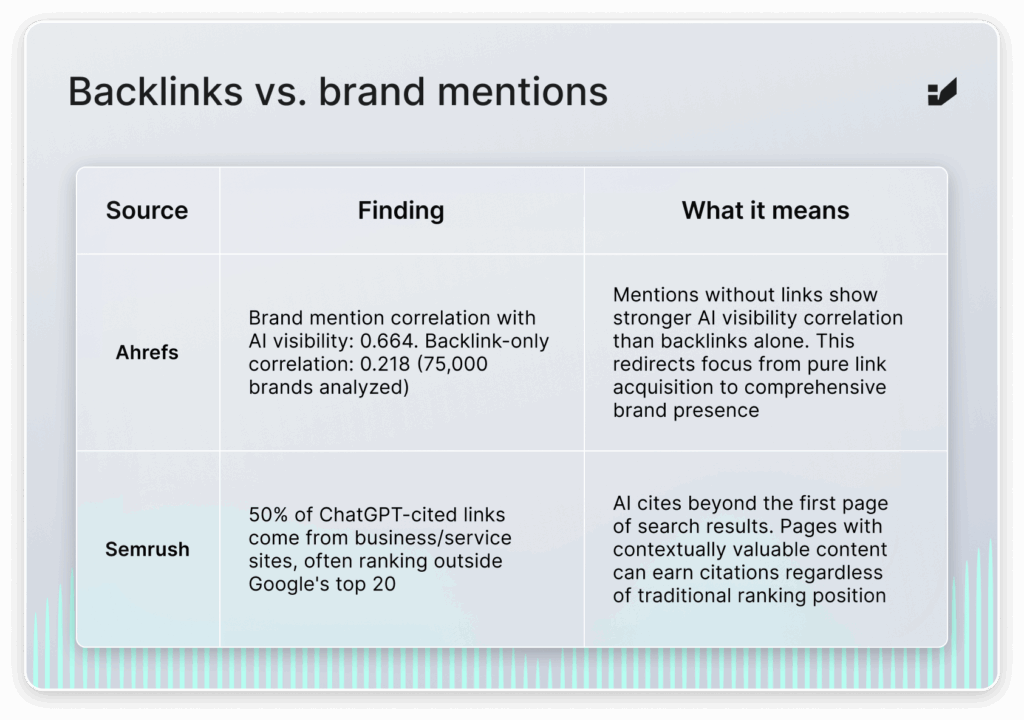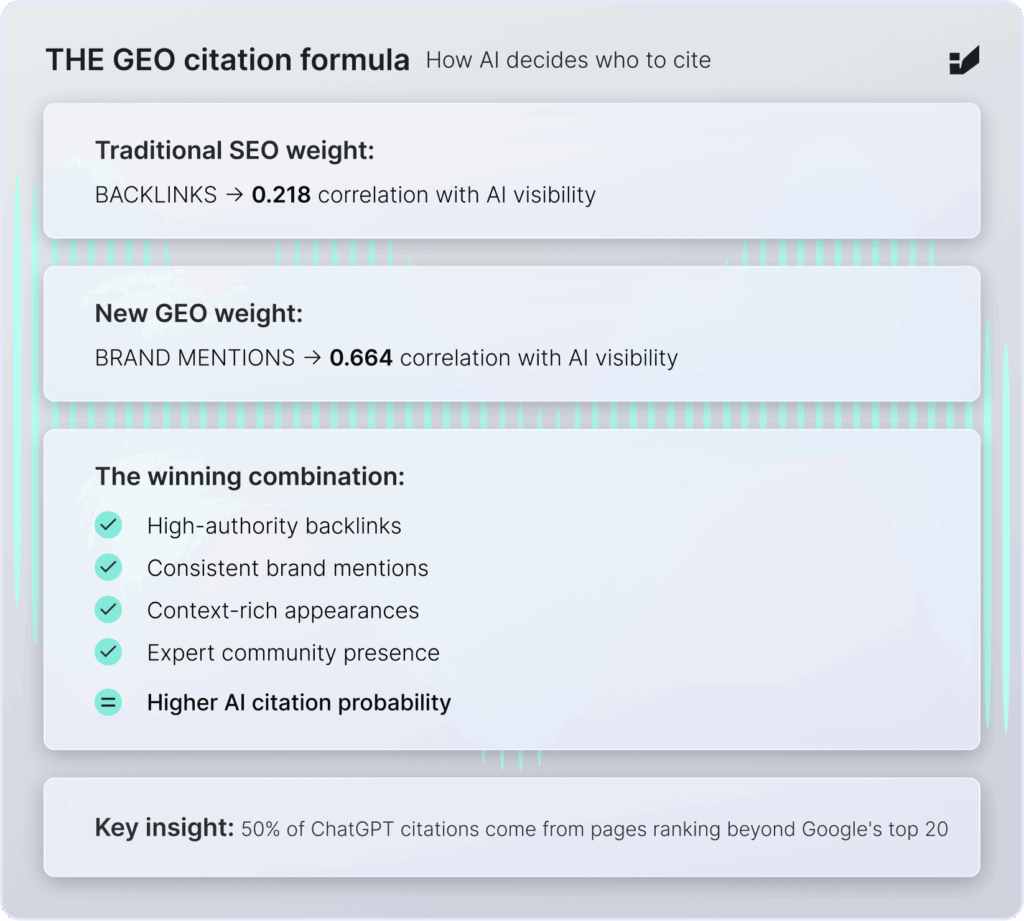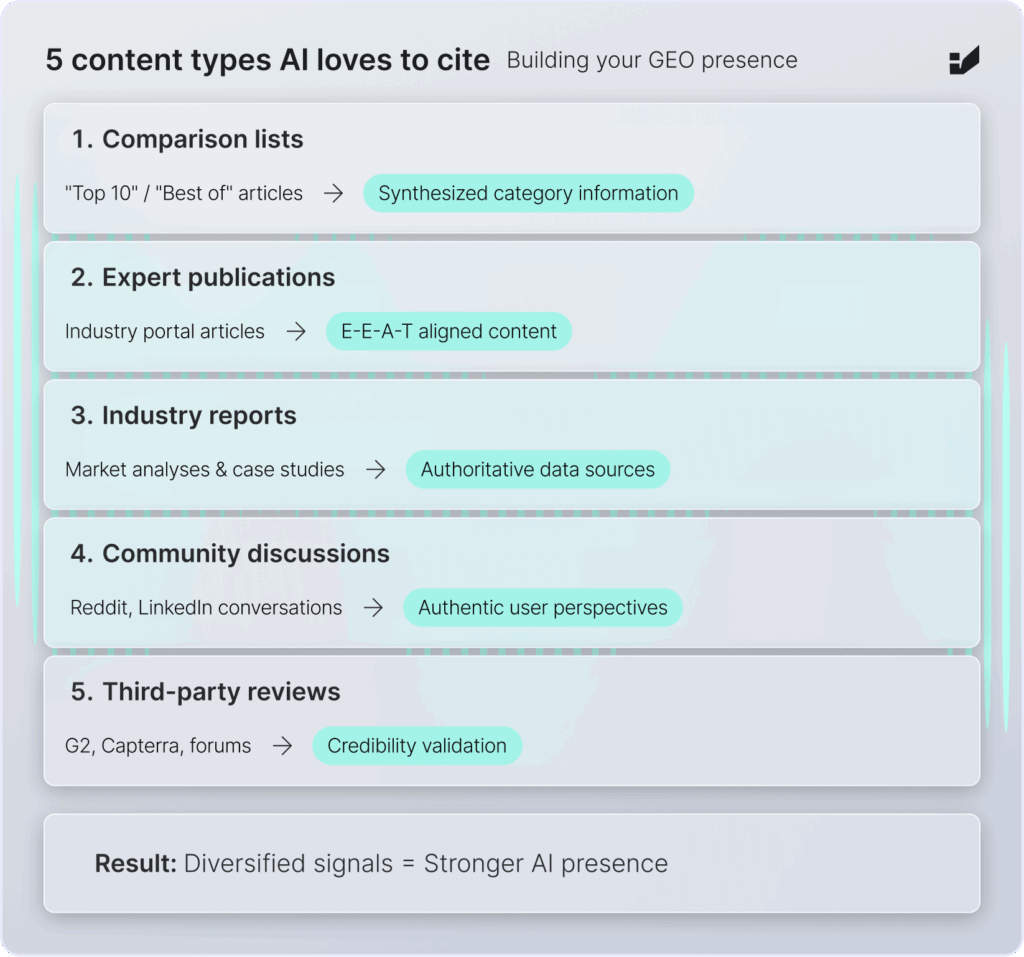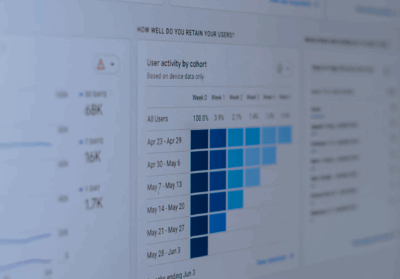Backlinks in the era of AI Search: Do they still matter in GEO?
Generative search engines like Google AI Overviews, ChatGPT, and Perplexity have become significant channels for content and product discovery. This shift forces brands to reconsider how they build their online presence. Traditional SEO has long depended on backlinks as a primary ranking factor. But with Generative Engine Optimization (GEO) and AI-generated answers, we need to ask whether links carry the same importance.

Research points to a nuanced answer. Ahrefs analyzed 75,000 brands and found that brand mentions correlate more strongly with AI visibility than backlinks alone (0.664 vs. 0.218). Meanwhile, pages ranking first in Google still tend to accumulate more high-quality backlinks than lower-ranking pages. These top sources often become the foundation for generative models’ responses.
This article examines:
- How AI selects sources for citations and where backlinks fit in
- What recent research reveals about backlinks versus brand mentions in AI search
- Which link-building tactics prove effective for GEO and how to track their success
Building visibility in AI-generated answers requires a different approach to link building than what worked even two years ago.
GEO in brief: essential context before we continue
Generative Engine Optimization (GEO) focuses on increasing brand visibility within AI-generated responses from systems like Google AI Overviews, ChatGPT, or Perplexity. Traditional SEO aims for high search rankings, while GEO ensures brands get cited and recommended within AI’s composed answers.
The fundamental difference lies in output format. AI doesn’t simply list links; it creates comprehensive answers. Rankings still matter, but so does the consistency and context of brand mentions across trusted sources, from industry publications to community forums.
For more details on GEO, see our comprehensive guide: Generative Engine Optimization: Everything You Have to Know for 2025.

How AI decides what to include in its answers
Language models powering generative search don’t function like Google’s traditional algorithms. Rather than showing a ranked list of links, they construct answers by selecting sources they deem credible and relevant.
Data sources for major AI systems
Google AI Overviews and Gemini pull from Google’s index and prioritize content with strong E-E-A-T signals (Expertise, Experience, Authoritativeness, Trustworthiness). Semrush data indicates that over 50% of links cited in AI Overviews originate from high-authority domains. Reddit and Quora frequently appear as sources, demonstrating the weight given to community-generated content.
ChatGPT merges knowledge from its training dataset with Bing search results when browsing mode is active. It shows preference for Wikipedia, expert blogs, and industry publications. Ahrefs research reveals that approximately 50% of ChatGPT’s cited links come from business and service websites, many ranking beyond Google’s top 20 results.
Perplexity gravitates toward expert and specialized sources: analytical reports, review platforms like NerdWallet or Investopedia, and industry-specific resources. This pattern suggests a clear preference for practitioner-created content and recognized field authorities.
Repetition and context build influence
A single mention rarely suffices. LLMs more frequently cite brands and sources that appear consistently across trusted contexts, from comparison articles to industry reports and Reddit discussions.
Co-citations amplify this effect. Regular appearances alongside competitors or in connection with industry keywords help AI categorize your brand as relevant within that sector.
This means raw backlink numbers matter less than the web of contexts where your brand appears.
Backlinks vs. brand mentions: what the data shows
Do links remain vital for GEO? Research suggests yes, though their function has shifted. Brand mentions gain importance, especially when considered alongside their surrounding context.
Key findings from research:

What does this mean?
- High-quality editorial links from expert domains maintain substantial influence
- Brand mentions and co-citations have become equally valuable: AI assesses brands through both link profiles and mention frequency/location
- Reputation carries weight: consistent appearances in trusted sources (comparisons, reports, forums) boost citation probability in AI responses
What kind of links matter for GEO?
Different link types carry varying influence in AI Search, where generative models assess backlink presence alongside context, quality, and semantic relationships.
1. Quality trumps volume
Directory submissions and PBN links fail in GEO. Analysis of extensive website data from Ahrefs and Semrush confirms that editorial and expert-source backlinks correlate strongly with AI Search visibility.
2. Relevance and topical alignment
Links from closely related content (industry portal reviews, market reports) outweigh those from broad, generalist sites. LLMs prioritize contextual consistency.
3. Site and author authority (E-E-A-T)
Google AI Overviews, ChatGPT, and Perplexity favor sources demonstrating strong E-E-A-T. Backlinks from these sources enhance brand credibility for generative models.
4. Entity-based SEO: links confirm relationships
Links now validate connections between entities: brands, products, and topics. Consistent appearances in rankings, comparisons, or reports alongside competitors signal to LLMs that you’re a relevant category player.
5. Link placement matters
Links integrated naturally within main content (article paragraphs) outperform footer or author bio placements. Semrush research shows 50% of ChatGPT-cited links originate from substantive content sections rather than peripheral page elements.
Summary
GEO success depends on link quality, context, and reputation-building role rather than quantity. A backlink from a respected, topically relevant portal, embedded in the main content and surrounded by other authoritative sources, increases AI response inclusion chances. This signals to models that your brand participates meaningfully in industry conversations.

What works? Proven link-building strategies in the AI era
For Generative Engine Optimization, links and mentions succeed when they construct a coherent brand narrative across trusted sources. Analysis of AI-cited content reveals preferred content types:
1. Lists and comparisons (“Top 10,” “Best Solutions”)
Roundup content frequently appears in AI citations because it synthesizes information and positions brands within specific categories.
2. Editorial publications and expert articles
Industry portal content and recognized media pieces carry more weight than company blogs, particularly when authored by documented experts (following E-E-A-T principles).
3. Industry reports and studies
Market analyses, research reports, and case studies serve as reliable AI reference sources. Inclusion in these publications strengthens authority positioning.
4. Expert community conversations
Semrush data shows platforms like Reddit and LinkedIn rank among Google AI Overviews’ most-cited sources. Active participation creates authentic brand presence.
5. Reviews and third-party feedback
AI models reference review platform content (G2, Capterra, industry forums) as credibility and user experience validation.
Key insight
Effective GEO link-building combines diverse source types: editorial content, reports, community discussions, and review platforms. This signal diversification most effectively strengthens AI response presence.

How to measure link-building effectiveness in GEO
GEO-era link performance extends beyond Google rankings. The central question becomes: Do your links increase generative model citation likelihood?
Manual citation testing
- Check ChatGPT, Perplexity, and Google AI Overviews regularly for your content in responses to field-relevant questions
- Document screenshots, track changes, and note which sources (yours or competitors’) receive citations
Tools for tracking mentions and citations
- Semrush AI Toolkit measures brand visibility in ChatGPT, Claude, or Google AI Overviews responses and provides competitor comparisons
- Ahrefs Brand Radar monitors linked and unlinked brand mentions, both increasingly influential for AI Search visibility
Why measurement matters
Success means increasing brand citation quantity and quality in trusted sources that LLMs reference when generating responses, not just acquiring backlinks.

Practical guidelines for 2025
Building generative search engine visibility requires approaches beyond traditional link-building. Here’s a framework for strengthening brand signals in the 2025 AI Search ecosystem:
Create content answering real user questions for LLMs
Generative models prefer sources providing thorough answers to questions while addressing multiple conversational query variations. Content planning shifts from single keywords to capturing comprehensive user intent.
Enhance content semantics with structured data
Schema markup (FAQ, HowTo, Review) serves as more than a classic SEO element. AI Overviews and other generative models use it to categorize and interpret content more effectively.
Build authority networks based on E-E-A-T
AI models recognize patterns: who discusses a brand, in which contexts, and with what frequency. Citations in reports, comparisons, or industry forums carry weight comparable to high-authority domain backlinks.
Think beyond individual links: focus on brand reputation
AI Search values comprehensive online presence, including links, mentions, citations, and community discussions. Combined, these elements form the brand profile that models consider citation-worthy.
Core principle
Effective GEO link-building means consciously constructing semantic and reputational networks that shape how LLMs cite and recommend brands, not just acquiring backlinks.

The path forward for backlinks and AI search
Do backlinks maintain their importance in AI Search? Yes, but their function continues to shift.
Links remain fundamental signals for both traditional SEO and Generative Engine Optimization. However, data demonstrates that brand mentions and co-citations (consistent appearances in trusted sources) increasingly determine how LLMs perceive and cite brands.
AI Search and GEO success today requires combining:
- Strategic backlinks from authoritative, topically relevant sources
- Brand presence in trusted contexts, including reports, comparisons, forums, and industry media
- Intentional reputation-building through E-E-A-T and consistent expertise signals
Appearing in search results no longer guarantees success. Brands must earn citations and recognition. Link-building becomes one component of a comprehensive strategy for strengthening visibility throughout the AI ecosystem.



